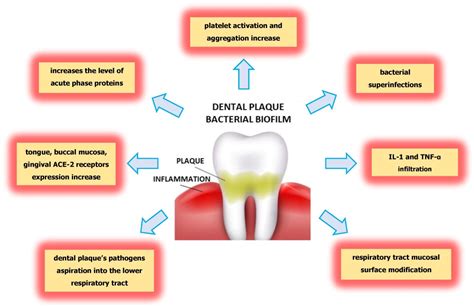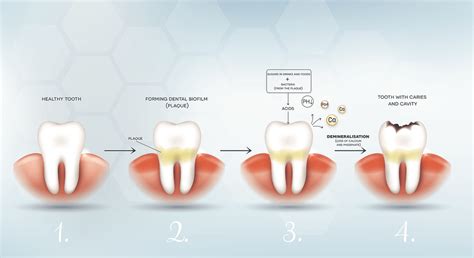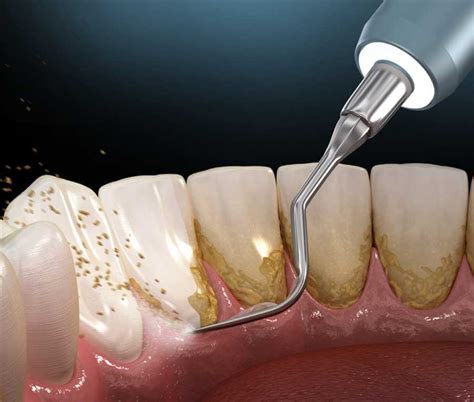Intro
Learn dental plaque self-care tips to prevent tartar buildup, promoting healthy gums and teeth. Effective oral hygiene routines and natural remedies help remove plaque, reducing risk of cavities and gingivitis.
Maintaining good oral health is crucial for overall well-being, and one of the most significant factors in achieving this is managing dental plaque. Dental plaque is a sticky film of bacteria that forms on teeth, leading to various oral health issues, including tooth decay, gum disease, and bad breath. Effective self-care practices can help prevent the buildup of dental plaque, ensuring a healthy and confident smile. Understanding the importance of dental plaque self-care is essential for individuals of all ages, as it not only affects oral health but also has implications for overall health.
The impact of dental plaque on oral health cannot be overstated. When plaque is not removed regularly, it can lead to the formation of tartar, a hardened deposit that can only be removed by a dental professional. Tartar buildup can cause inflammation of the gums, known as gingivitis, which, if left untreated, can progress to periodontitis, a more severe condition that affects the supporting structures of the teeth. Furthermore, research has shown that there is a link between gum disease and various systemic conditions, including heart disease, diabetes, and respiratory infections. Therefore, incorporating effective self-care practices into daily routines is vital for maintaining good oral health and preventing the complications associated with dental plaque.
Preventing dental plaque buildup requires a combination of good oral hygiene practices, a balanced diet, and regular dental check-ups. Brushing teeth at least twice a day with a fluoride toothpaste and cleaning between teeth once a day with floss or an interdental cleaner can significantly reduce plaque formation. Additionally, limiting sugary and acidic foods and drinks, which are known to contribute to plaque buildup, is also important. By understanding the causes of dental plaque and implementing these preventive measures, individuals can take the first step towards a healthier, plaque-free smile.
Understanding Dental Plaque

Understanding dental plaque is fundamental in managing its buildup. Dental plaque is a biofilm of microorganisms that forms on the teeth, both above and below the gum line. It is composed of bacteria, fungi, and protozoa, which adhere to the tooth surface and feed on food particles, especially sugars and starches. The bacteria in plaque produce acids as byproducts, which can damage tooth enamel and lead to cavities. Moreover, plaque can cause inflammation of the gums, leading to gingivitis and, if not treated, periodontitis. Recognizing the composition and effects of dental plaque highlights the importance of regular oral hygiene practices in preventing its formation.
Formation of Dental Plaque
The formation of dental plaque is a complex process that involves the adherence of microorganisms to the tooth surface, followed by the accumulation of these microorganisms and the formation of a biofilm. This process can occur rapidly, with plaque beginning to form on clean teeth within hours of brushing. The rate of plaque formation can be influenced by various factors, including oral hygiene practices, diet, and the presence of systemic diseases. Understanding the factors that contribute to plaque formation can help individuals develop targeted strategies for preventing its buildup.Prevention of Dental Plaque

Preventing dental plaque buildup is crucial for maintaining good oral health. Several strategies can be employed to prevent plaque formation, including:
- Brushing teeth at least twice a day with a fluoride toothpaste to remove plaque and prevent tartar buildup.
- Cleaning between teeth once a day with floss or an interdental cleaner to remove plaque and food particles from areas that a toothbrush cannot reach.
- Limiting sugary and acidic foods and drinks, which contribute to plaque buildup.
- Visiting a dentist regularly for check-ups and cleanings to remove tartar and detect oral health issues early.
Oral Hygiene Practices
Effective oral hygiene practices are key to preventing dental plaque buildup. Brushing teeth should be done gently with a soft-bristled toothbrush and fluoride toothpaste, paying special attention to the areas where the teeth and gums meet. It is also important to replace toothbrushes every three to four months or sooner if the bristles become frayed. Additionally, cleaning between teeth with floss or an interdental cleaner helps remove plaque and food particles that can get stuck between teeth, reducing the risk of plaque buildup and gum disease.Treatment of Dental Plaque

The treatment of dental plaque involves removing the plaque and tartar from the teeth, both above and below the gum line. This can be done through professional dental cleanings, which are typically performed by a dentist or hygienist. During a cleaning, the dentist or hygienist will use specialized tools to remove plaque and tartar, and then polish the teeth to remove any remaining stains. In cases where gum disease is present, more extensive treatment may be necessary, such as deep cleaning or surgery to repair damaged gum tissue.
Professional Dental Cleanings
Professional dental cleanings are an essential part of maintaining good oral health and preventing the complications associated with dental plaque. These cleanings should be performed regularly, typically every six months, to remove plaque and tartar that can buildup on the teeth. During a cleaning, the dentist or hygienist will also examine the mouth for signs of oral health issues, such as cavities, gum disease, and oral cancer, allowing for early detection and treatment.Diet and Dental Plaque

Diet plays a significant role in the formation of dental plaque. Foods and drinks that are high in sugars and starches can contribute to plaque buildup, as they provide a source of energy for the bacteria in the plaque. Limiting these types of foods and drinks can help reduce plaque formation. Additionally, a diet rich in fruits, vegetables, and whole grains can help promote good oral health by providing essential nutrients and antioxidants that support the health of the teeth and gums.
Nutrition and Oral Health
Nutrition has a profound impact on oral health, with a balanced diet being essential for maintaining healthy teeth and gums. Foods that are rich in calcium, such as dairy products, and vitamin D, such as fatty fish, can help strengthen tooth enamel and support the health of the gums. Additionally, a diet high in antioxidants, such as vitamins C and E, can help reduce inflammation and promote healing in the mouth. By making informed dietary choices, individuals can support their oral health and reduce the risk of dental plaque buildup.Conclusion and Future Directions

In conclusion, dental plaque self-care is a critical aspect of maintaining good oral health. By understanding the causes of dental plaque, implementing effective preventive measures, and seeking professional dental care when necessary, individuals can reduce the risk of plaque buildup and its associated complications. As research continues to uncover the links between oral health and systemic diseases, the importance of dental plaque self-care will only continue to grow. By prioritizing oral health and making informed choices about diet and lifestyle, individuals can take a proactive approach to managing dental plaque and promoting overall well-being.
What is dental plaque and how is it formed?
+Dental plaque is a sticky film of bacteria that forms on teeth, leading to various oral health issues. It is formed when bacteria in the mouth adhere to the tooth surface and feed on food particles, especially sugars and starches.
How can dental plaque buildup be prevented?
+Dental plaque buildup can be prevented through good oral hygiene practices, such as brushing teeth at least twice a day with fluoride toothpaste and cleaning between teeth once a day with floss or an interdental cleaner. Limiting sugary and acidic foods and drinks can also help.
What are the consequences of not removing dental plaque?
+If dental plaque is not removed regularly, it can lead to the formation of tartar, causing inflammation of the gums (gingivitis) and potentially progressing to periodontitis, a more severe condition that affects the supporting structures of the teeth.
We invite you to share your thoughts and experiences with dental plaque self-care in the comments below. How do you maintain good oral health, and what strategies have you found most effective in preventing dental plaque buildup? Your insights can help others prioritize their oral health and promote a community of individuals committed to achieving healthy, confident smiles.
